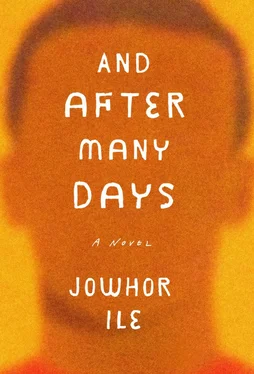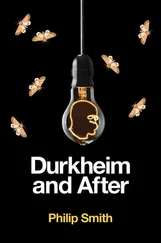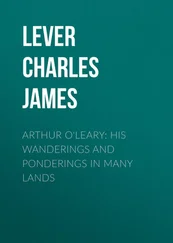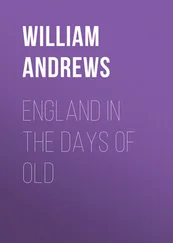The distant drumming had stopped. Paul turned over and mumbled something in his sleep, and Ajie was sure he could hear Bibi softly breathing from the room next door.
—
There is a house on the left corner of the square. If you are walking from Mercury Super Store, it’s the first thing you will see. It’s built of red brick and has wooden windows that open outward. There is a high veranda and there are five steps you have to climb to get to it. Beside this house, there is a path wide enough for a car to drive along.
Paul and Ajie turned left onto this road, and the sun was high, but the cotton trees that lined the path shielded them. They walked past Nwube’s house, which had a stick barring the entrance to the narrow walkway. There was pounding coming from Nkaa’s house, and the voices of women were loud and indistinct. Nkaa was a hunter, famed for killing three buffaloes in his lifetime, before buffaloes became extinct in Ogba land. People said that the buffaloes got offended and left due to the inhospitality shown them. Nkaa paid the price for hunting down these great beasts with his lack of children. Buffaloes, it was said, had strong spirits.
Here is the house Charlie built. The house his son now lives in since Charlie died. Ajie never met Charlie, but there was a popular ballad about him and his wife, Opi, that had endured. Opi had refused to let Charlie have the chicken gizzard, which was a part reserved for the man of the house. The chicken thighs were the man’s portion; the chicken bottom was his, too; so were the kidneys and the breasts. Opi, as it turned out, had developed a ruinous taste for gizzards and simply dished them out for herself all the time. These were the facts of this notorious domestic dispute. “What?” the final line of the ballad inquired. “Opi, what wrong did Charlie do to have married you?”
“Wait!” Someone was shouting and running toward them. “Wait.” It was Ossai, Ajie’s friend. “I went to your house to look for you, but you were not there. Someone said they saw you near Mercury. Where are you going?”
“We are going to see Boy in Obigwe,” Ajie said.
“Do you want to come with us?” Paul asked. “We’ll drive to Omoku. Boy’s cousin has a party.”
“I’ll come,” Ossai said, and fell in line with them as they walked along. “There is going to be trouble in town today,” he continued, still breathless from his running.
Company had decided to give all of Ogibah a gift of twenty cows for the New Yam Festival. This morning two trucks drove into Ogibah with the cows and parked on the road beside Nwokwe’s house. There was already fighting among the OYF. Some of the members thought the gift should be returned right away, that Company had ignored what Ogibah was talking about and instead had brought gifts to win them over. Other members thought it was stupid to return the gifts, it was a fine gesture, there was no point in being so extreme. Other people were wondering why the truck was parked in front of Nwokwe’s house instead of in the square. Who apart from Nwokwe was consulted about the gift? Fighting had broken out that morning. Nwokwe’s son, Ogbuku, had a third of the OYF with him. If these old men wanted to talk forever, they could go ahead, but before sunset, there would be the smell of burning meat in the air.
Ossai had given them a detailed account of the morning skirmish when they finally hit Uhwo. “Morgan sent a message to Ogbuku saying that if any of the cows’ blood dropped on Ogibah soil tonight, human blood would drop, too.”
Uhwo was a vast spread of wiry grassland that stretched from Ogibah to Obigwe. Ma said Uhwo was an anomaly: a Sahel-like grassland that had no business being in a rain forest. Bendic said it was possible Uhwo was a desiccated river from hundreds of years ago. It still flooded often, and the soil was an ashy clay that didn’t support much farming; it was a hot shrub steppe teeming with rodents and small lives. Animals came there to graze. It was there, by that tree, that Nkaa crouched in wait all night for a herd of buffaloes he had been tracking for weeks.
Each time Nkaa cut down a buffalo, the whole village came out to celebrate his kill. A medicine man would be sent for from an Ekpeye village, because Ekpeye people, it was believed, had strange and powerful medicines. As the buffalo was being flayed, torn apart, and disemboweled, the medicine man would take Nkaa to a hut to prepare his body against the attack of the buffaloes. That same night Nkaa would be escorted straight to his mother’s people.
Late in the deep dark, buffalo cries would be heard. A herd of them would gather at Nkaa’s door and weep all night. Why had he taken their brother? Why had he taken their mother? And if Nkaa had a pregnant wife at the time, the very next morning, she would see blood. After he killed his third buffalo in ’82, his mother begged him to leave the creatures alone. She wanted to have a grandchild from him before going to her grave.
They reached Boy’s house and went in through the back door. Paul looked at his watch and said it was one-thirty and that they were just in time. Boy was already dressed. “Look at my Port Harcourt boys!” he shouted when he saw his visitors. “Look at my boys from Port Harcourt!” He shook hands with Paul and asked how he was doing. Some children sitting on the ground stopped their play to watch the new arrivals. Boy was about eighteen but always treated Paul like his mate. He liked to take them places whenever they came to the village. He would brag about them to friends. His first and only time in Port Harcourt, he had come with his mother to spend the weekend with the Utus at 11 Yakubu. Boy’s mother had brought them a bunch of plantains, groundnuts, and palm kernels as gifts, and Bendic and Ma had said to her, “Oh why do you worry yourself so much.” Boy had spent the weekend learning to play Nintendo games with Paul. When Bendic took them to Chanrai’s and asked them to pick whatever they wanted, Boy didn’t know what to pick; he didn’t know if he wanted anything. Later he told Paul and Ajie that Chanrai’s was like abroad, and was it the American man at the counter who owned the shop? Paul told him Jaysil wasn’t the owner of Chanrai’s, although someone in his family was, and that they were from India, not America.
The party in Omoku wasn’t really happening, at least not yet. It was only three in the afternoon, and there was music coming from the room Boy led them to. It was dark inside, and Ajie had to squint to see the two people who were sitting on the bed. The stereo speakers were set on the floor, and Ajie could feel the vibration coming from the thumping of the music. Boy shook hands with the two boys sitting on the bed and told them these were his cousins. One boy stood up lazily and said welcome to them. He left the room and returned with four drinks, which he dropped on the floor beside them and nodded at Paul. He left the room again for a long time. He ushered in two girls when he came back in. “Have a seat,” he said to them, and they sat down awkwardly on the bed beside Paul.
Later, Ajie heard Boy saying to the girls that Paul had come from Port Harcourt. One of the girls wore a blue cotton blouse with a red rose drawn over her bosom. She had a print wrapper around her waist and wore rubber slippers. Her face was white with talcum powder, and she looked like she would rather not be in the room. Her friend was chatting with Boy’s friend. Chaka Demus & Pliers came through the speakers, chanting “Water Bam Bam ”; the girls spoke quietly among themselves and then stood up and began to dance. They held each other’s hands and moved to the beat. Boy went to the door and beckoned to Ajie. When Ajie stood up, Boy beckoned to Ossai, too, and they both followed him out of the room.
Читать дальше
